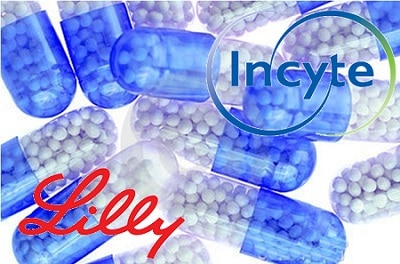Jazz Pharm announced that the first patient has been enrolled in a Phase 2 clinical study evaluating JZP-110 , a selective dopamine and norepinephrine reuptake inhibitor, as a potential treatment for ES in adult patients with Parkinson’s disease.
The clinical study will be conducted across approximately 15 centers in the United States.“Excessive sleepiness is a debilitating symptom of Parkinson’s disease, and we are interested in determining whether the wake-promoting effects of JZP-110 could be beneficial in this patient population,” said Karen Smith, M.D., Ph.D., global head of research and development and chief medical officer of Jazz Pharmaceuticals. “The initiation of this study is another step forward in our development program for JZP-110 and our efforts to develop new treatment options for people with sleep disorders.”
The Phase 2 study is a double-blind, placebo-controlled, randomized, multicenter, crossover study evaluating the safety, efficacy and pharmacokinetics of JZP-110 in adult patients with Parkinson’s disease and ES. The study is expected to enroll approximately 50 patients.
About JZP-110 JZP-110 is a selective dopamine and norepinephrine reuptake inhibitor (DNRI) in late-stage development for treatment of ES in adult patients with narcolepsy or obstructive sleep apnea (OSA). Jazz Pharmaceuticals has worldwide development, manufacturing, and commercialization rights to JZP-110, excluding certain jurisdictions in Asia. JZP-110 has orphan drug designation in the United States for narcolepsy. The JZP-110 Phase 3 clinical program includes two studies evaluating ES in adult patients with OSA, one study evaluating ES in adult patients with narcolepsy and an open label long-term safety study. Patient enrollment in the OSA and narcolepsy studies is complete and enrollment in the open-label study is ongoing.
About ES in Parkinson’s Disease Parkinson’s disease (PD) is a chronic neurodegenerative brain disorder with motor and non-motor symptoms affecting as many as one million people in the United States.1 Excessive sleepiness (ES) is a common non-motor symptom of PD, affecting 20-50% of patients.2-4 ES contributes significantly to the disease burden of PD, and is a major cause of decreased quality of life in patients.5,6 ES also poses significant safety risks for patients with PD and may lead to an increased risk for falls and motor vehicle accidents.7,8 There are currently no FDA-approved drugs for the treatment of ES in PD.
About Jazz Pharmaceuticals
Jazz Pharmaceuticals plc is an international biopharmaceutical company focused on improving patients’ lives by identifying, developing and commercializing meaningful products that address unmet medical needs. The company has a diverse portfolio of products and product candidates, with a focus in the areas of sleep and hematology/oncology. In these areas, Jazz Pharmaceuticals markets Xyrem® (sodium oxybate) oral solution, Erwinaze® (asparaginase Erwinia chrysanthemi) and Defitelio® (defibrotide sodium) in the U.S. and markets Erwinase® and Defitelio® (defibrotide) in countries outside the U.S. For more information, please visit www.jazzpharmaceuticals.com
References:
1 Parkinson’s Disease Foundation, http://www.pdf.org/en/parkinson_statistics 2 Arnulf I. Excessive daytime sleepiness in parkinsonism. Sleep Medicine Revews (2005) 9, 185-200. 3 Knie B. Excessive daytime sleepiness in patients with Parkinson’s Disease. CNS Drugs 2011; 25 (3): 203-212 4 Salawu F and Olokoba A. Excessive daytime sleepiness and unintended sleep episodes associated with Parkinson’s Disease. Oman Medical Journal 2015; 30 (1): 3-10. 5 Ondo W. Daytime sleepiness and other sleep disorders in Parkinson’s Disease. Neurology 2001; 57: 1392-1396. 6 Weerkamp N. Nonmotor symptoms in nursing home residents with Parkinson’s Disease: prevalence and effect on quality of life. J Am Geriatr Soc 2013; 61: 1714-1721. 7 Meindorfner C. Driving in Parkinson’s Disease: mobility, accidents, and sudden onset of sleep at the wheel. Movement Disorders 2005; 20 (7): 832-842. 8 Spindler M. Daytime sleepiness is associated with falls in Parkinson’s disease. J. Parkinson’s Dis. 2013; 3(3): 387-391.http://www.jazzpharmaceuticals.com



















